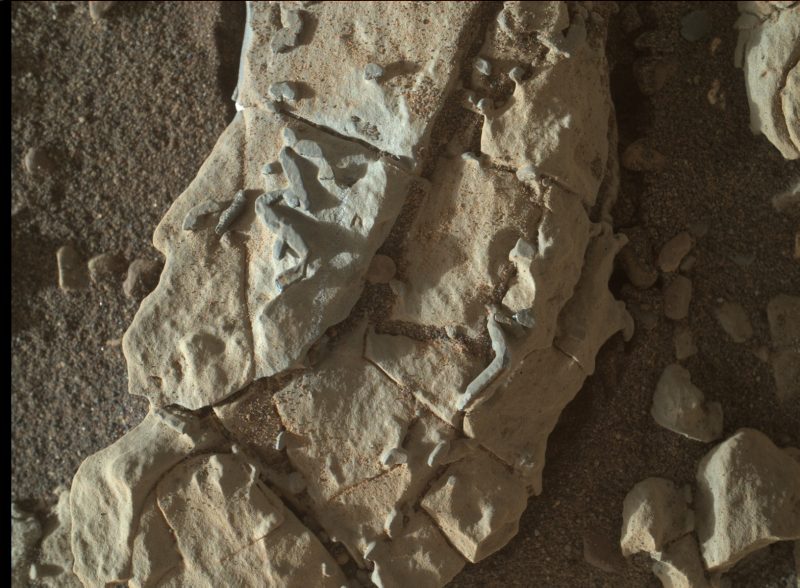
Researchers have ruled out the possibility that the methane that has been detected in the atmosphere of Mars is due to the erosion of rocks by the Martian wind, yet another step in determining whether the organic molecules in question are leftover elements from ancient sources trapped in the planet’s crust, or new gas being produced by the metabolism of organisms still living in the soil of the Red Planet.
Mars’ atmosphere has been found to contain methane that varies with the changing of the seasons, and while this is a potential sign of life on the otherwise cold, windswept Martian landscape—90 percent of Earth’s methane is biologically produced—that doesn’t mean that the CH2 found on Mars doesn’t have an abiotic origin.
However, one of the potential sources of non-biologically produced methane has been ruled out by researchers at Newcastle University in England, in particular the erosion of Martian rocks by the wind. By analyzing Martian meteorites found here on Earth and comparing them to basalt and sedimentary rocks native to our planet, the researchers calculated how much rock-bound methane could be freed from the ground by wind-based erosion. They calculated that for enough methane to be released from the rocks to raise concentrations to be detectable in the Martian atmosphere, the rocks would have to contain at least as much CH4 as the most hydrocarbon-rich shale found here on Earth, a very unlikely scenario, according to the study team.
“What’s important about this [finding] is that it strengthens the argument that the methane must be coming from a different source,” according to study co-author Jon Telling, a geochemist at Newcastle University. “Whether or not that’s biological, we still don’t know.”
Although methane is a common byproduct of the metabolism of Earth-based organisms, it can still be produced by less complex processes, such as the exposure of hot water to particular types of rock. The cause behind sudden spikes of methane in Mars’ atmosphere is also still an open question: is it due to the reaction of Martian organisms to the change of seasons, or is there a geological process that’s releasing the gas periodically?
“Our paper is just a little part of a much bigger story,” explains study lead author Emmal Safi, a postdoctoral researcher in Newcastle’s School of Natural and Environmental Sciences. “Ultimately, what we’re trying to discover is if there’s the possibility of life existing on planets other than our own, either living now or maybe life in the past that is now preserved as fossils or chemical signatures.”
Subscribers, to watch the subscriber version of the video, first log in then click on Dreamland Subscriber-Only Video Podcast link.
Thought this to be interesting as well…….
https://www.bbc.com/news/av/world-us-canada-49011170/sounding-alert-about-vanishing-us-coastlines
Excellent pictorial, Carollee! The effect of increased flooding on coastal infrastructure, like the container port in one of the pictures, is one aspect of sea level rise that isn’t considered too often.